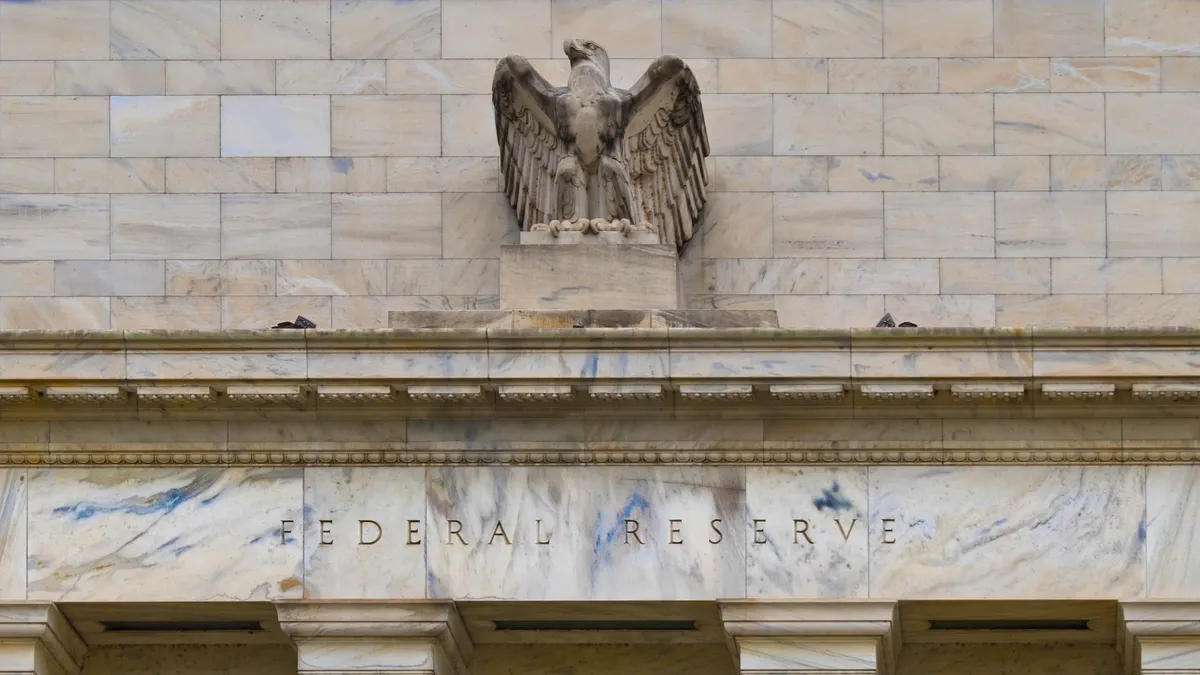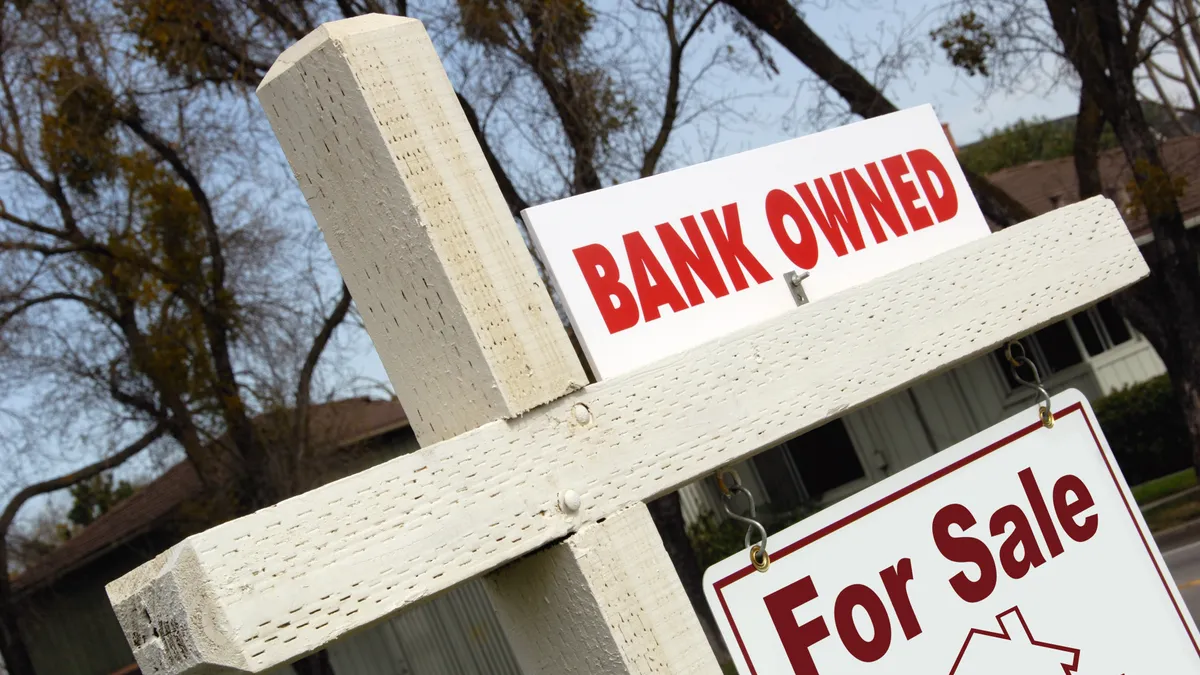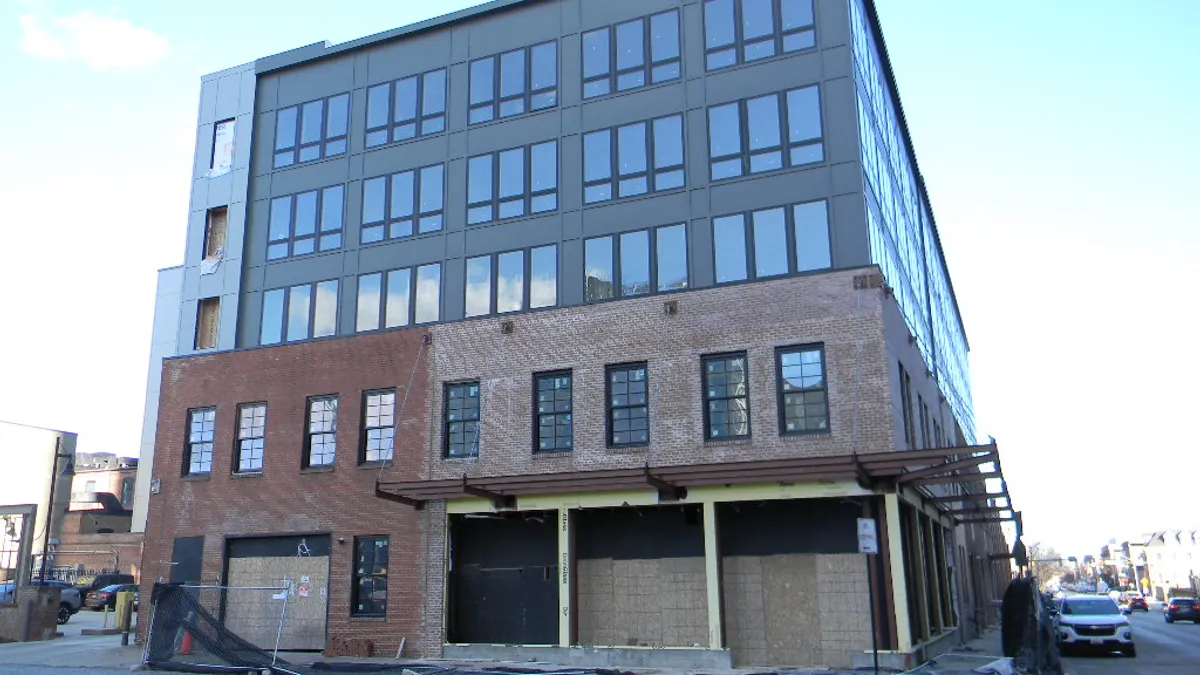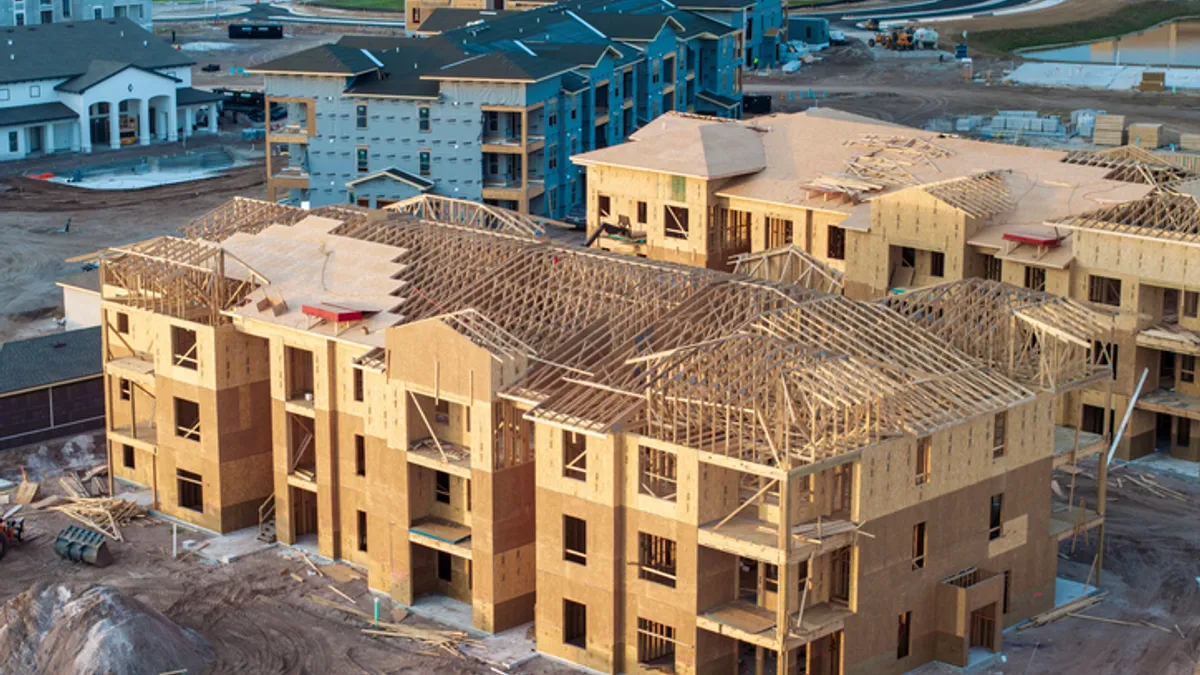Multifamily leaders have been waiting months for potential interest rate cuts from the Federal Reserve. With last week’s signal that the central bank will likely trim the federal funds rate from the current range between 5.25% and 5.5% to 4.6% by the end of 2024, apartment leaders got their wish granted just in time for the holidays.
“From a management standpoint, it brings a renewed optimism and excitement about 2024,” said Marc Pollack, managing director for multifamily at Dania Beach, Florida-based property management firm FirstService Residential. “I think there will be a bit of a lag of that feeling to hit our clients, but it certainly puts us, as management, in a position to remind our clients that the environment is turning neutral and may even be turning favorable.”
In addition to signaling rate cuts, the central bank still noted that inflation “remains elevated,” as it held the main interest rate at a 22-year high last week. Fed officials believe more rate hikes will probably not be needed in coming months but want to retain the option of further tightening in case inflation stops falling toward its 2% target, Chair Jerome Powell said after a two-day meeting of the Federal Open Market Committee.
“The lower inflation readings over the past several months are welcome, but we will need to see further evidence to build confidence that inflation is moving down sustainably toward our goal,” he said at a press conference.
Despite the Fed’s note of caution, the signal of possible rate cuts left many multifamily pros more optimistic than they have been in quite some time.
A sales starter
Shortly after the Fed’s announcement, the 10-year Treasury, a basis for multifamily loans, dropped.
“The dovish pivot from the Fed this week, with 75 basis points of rate cuts penciled in for 2024 and optimistic projections for inflation and unemployment, followed by strong retail sales on Thursday morning, allowed 10-year yields to drop below 4.0%, a low not seen since July of this year,” Josh Bodin, senior vice president of securities trading with New York City–based commercial real estate services firm Berkadia, told Multifamily Dive.
Bodin thinks lower Treasury yields should lead to more deal activity, which has been hampered due to interest rate volatility. “Once yields stabilize, investors should have more clarity on their cost of capital and pricing, which should lead to more sales and refinancing activity,” he said.
Gerardo Mahuad, managing principal at Miami-based apartment owner and manager Eagle Property Capital, thinks rate cuts could be beneficial, partially because they’ll provide more consensus on pricing.
“A stable interest rate environment will help lenders and investors to become more closely aligned with the current state of capital markets, putting an end to the transaction halt that we have seen in the past months,” Mahuad said.
With clarity on pricing, apartment owners who want to sell could come back into the market. “The once-motivated seller, who became sidelined due to the rate environment and the cap rate environment, is now suddenly motivated again,” Pollack said.
The rate cuts, combined with continued strong demand, will help property values recover, according to Darren Fisk, CEO of Denver-based Forum Investment Group.
“While values may be depressed with some stressed selling in the near term, we believe sustained rent growth, potentially augmented by rate cuts in the future, will create more liquidity in the market in further support of improving values and market fundamentals,” he said.
Turnover concerns
However, there could also be a downside to higher rates for rental owners and managers. Increased borrowing costs made it more challenging for apartment residents to buy homes in 2023.
For instance, Houston-based Camden’s move-outs to buy homes sat at 11.8% in Q2 as would-be buyers faced higher interest rates. It was 13.8% for the full year of 2022 and 15.1% in Q2 2022. In July 2023, the percentage fell to 9.8%.
“We haven’t seen single-digit move-outs to purchase homes since — you’d have to go back to the Great Financial Crisis,” Camden President Keith Oden Oden said on the REIT’s second-quarter earnings call. “We had a couple of quarters in there where we were at single digits on that metric.”
If borrowing costs fall, some of those renters may start looking to move out. “Lower rates are going to bring more potential home buyers into the mix,” Pollack said. “That was a bit of an insulator that the rental market had in a high-rate environment. And so I think we're going to be competing again for a portion of the market who are considering buying a home.”
CFO Dive Senior Reporter Jim Tyson contributed to this report.
Click here to sign up to receive multifamily and apartment news like this article in your inbox every weekday.



















